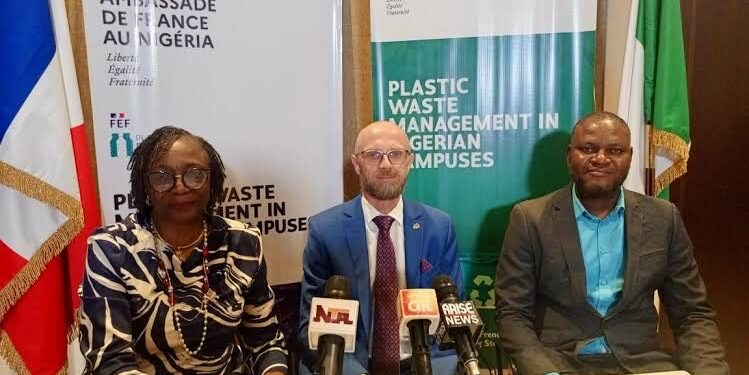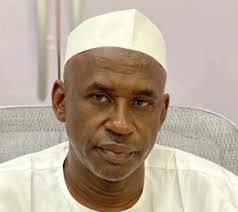France has engaged in a partnership with 13 Nigerian universities to establish research centers and construct microplants aimed at enhancing plastic waste management in the nation. The institutions benefiting from this collaboration, which amounts to €753,000 under the French Embassy Fund (FEF) Project 2024, include Alex Ekwueme University, Bayero University Kano, Nile University, Covenant University, Babcock University, University of Jos (UNIJOS), Obafemi Awolowo University (OAU), University of Ibadan, University of Lagos (UNILAG), Yaba College of Technology, University of Calabar, University of Nigeria, Nsukka, and University of Delta.

This FEF initiative, spearheaded by the French Government as part of a global effort to combat plastic pollution, aims to support young Nigerian researchers from the partner universities in developing innovative solutions for a healthier and safer environment, where plastic waste has minimal to no impact, particularly within educational settings.
The projects funded are expected to be fully operational and sustainable by December 2025.
During the event held at the French Embassy in Nigeria, located in Abuja, Jean Francois Hasperue, the Chargé d’Affaires of France to Nigeria and ECOWAS, emphasized the urgency of addressing climate change effects, such as extreme weather events, rising sea levels, loss of biodiversity, and severe droughts. He highlighted Nigeria as one of the ten most vulnerable countries to climate change globally. Hasperue stressed the need for global collaboration in finding solutions to combat air and plastic pollution, emphasizing that these issues transcend borders.

Moreover, Hasperue acknowledged the rise of youth activism as a pivotal force in the fight against climate change. He emphasized the importance of listening to the voices of young people and engaging in dialogue to address incomplete answers and foster discussions.
The French Embassy Fund, a program under the French Ministry of Europe and Foreign Affairs, aims to support innovative initiatives that have a swift and visible impact on local populations through French representations abroad. The project will be implemented over the next 18 months, focusing on three main components: establishing micro plants in collaboration with two universities (UNILAG and Nile University) equipped with specialized machinery for plastic collection, processing, and transformation; funding research projects in sustainable development, circular economy, gender inclusivity, and entrepreneurial potential; and providing training programs to enhance capacity building, scientific exchange between Nigerian and French researchers, and mobility programs at the higher education level.




































